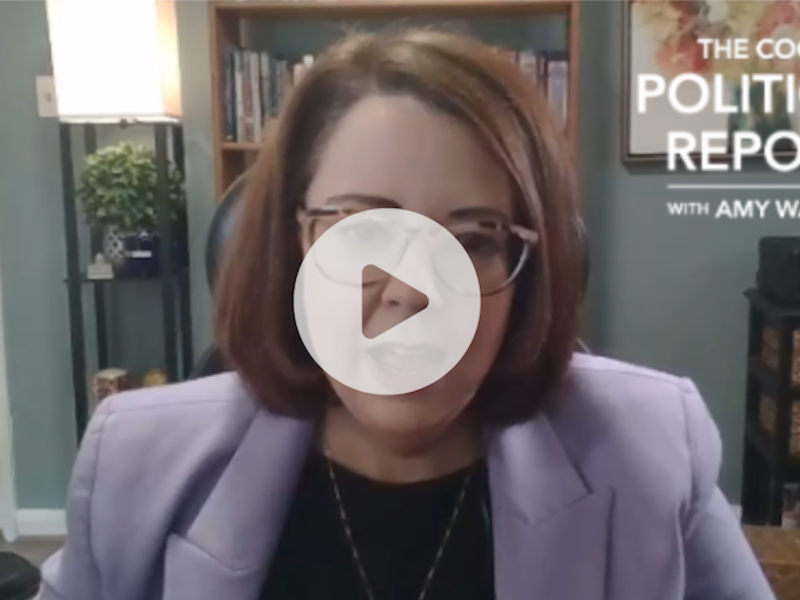
Many people have come to believe that the Iowa caucus and the New Hampshire primary effectively pick Democratic presidential nominees. They do have some evidence to draw on: Iowa has picked the eventual nominee in the last four contested Democratic nominations. But the longer-term pattern is that Iowa and New Hampshire cull the herd, narrowing down the field to a manageable number. From Jimmy Carter in 1976 onward, every eventual Democratic nominee has come in first, second, or third in Iowa, then either first or second in New Hampshire.
For all of the vote-counting and app problems that the caucus had this week, it did succeed in its culling function. Their campaigns may scream bloody murder, but this campaign is effectively over for Joe Biden and Amy Klobuchar, to say nothing of also-rans Michael Bennet, Tulsi Gabbard, Deval Patrick, Tom Steyer, and Andrew Yang. As hard as Biden and Klobuchar worked—along with their families, friends, campaign staffers, donors, and volunteers—it doesn’t seem meant to be this year. Elizabeth Warren’s campaign is just on this side of life support, but she can still look forward to New Hampshire, next door to her home state, for a lifeline. If Warren does well, she can stay in the race, but there she must contend with Bernie Sanders from neighboring Vermont. The presidential-nominating process is a brutal and Darwinian; it may not be fair, but it is what it is.
Pete Buttigieg and Bernie Sanders got big boosts from their photo finish. With 97 percent of the vote counted, Buttigieg had a one-tenth-of-a-percentage-point lead over Sanders in the State Delegate Equivalent (SDE) count, 26.2 to 26.1 percent. Sanders, however, carried the initial popular vote by 3.4 percentage points, 24.7 to 21.3 percent. In the final vote, Sanders’s edge narrowed to 1.5 percentage points, 26.5 percent to 25 percent. Most news organizations are pushing the SDE percentages rather than the popular vote, on the theory that these are contests about delegates. My view is that the popular vote on the initial and final votes is just as illuminating, if not more. The early states are more about demonstrating voter support before the other 46 contests coming on and after Super Tuesday, when 96 percent of delegates are earned.
Warren was in third place, but not a close third. It was a letdown by what ostensibly had been the best organization in the state. For a candidate who, back in October, looked to many as the nominee-in-waiting, it was a tough and underwhelming showing.
Is it premature to declare Biden’s candidacy politically dead? I say no, but with no pleasure, having met him 47 years ago when we were both freshmen: He was a barely 30-year-old, recently widowed freshman senator; I was a 19-year-old college freshman working on Capitol Hill. He was hanging out with a half dozen of us interns in the kitchen of my boss’s home in McLean, Virginia, while about eight senators, including Majority Leader Mike Mansfield, and their spouses were enjoying a buffet in the dining and living rooms. He is one of the nicest, most decent people you will ever meet in politics. But politics is a tough business.
This year, Biden had been a front-runner since he entered the race in April—but a fragile front-runner. His status was akin to a three-legged stool. One leg was experience, with 36 years in the Senate, much of it as chairman and ranking member of the Foreign Relations Committee, and eight as vice president. He had more meaningful governmental experience than the rest of the Democratic field combined. The second leg was goodwill. Over almost 50 years in Democratic politics, his genial manner and fundamental decency served him well, as did his selection as running mate by his junior Senate colleague Barack Obama, whom he served loyally as VP, a relationship that did not hurt among African-American voters.
The third leg was electability. For many Democrats, the obsession to evict President Trump from the White House is so great, at the end of the day, many don’t care who the nominee is so long as that nominee beats Trump. Polls showed that Biden was widely seen as the most electable, and hypothetical matchups with Trump bore that out. But electability is a funny thing. Once you start losing elections badly, that perception of electability is gone. Biden’s campaign had money problems even before this disastrous showing; those challenges will only grow now. It’s hard to see how he can remain viable even to take advantage of early leads he has in Nevada and South Carolina—never mind Super Tuesday with its $100 million-plus ante. It’s a tough business.
This story was originally published on nationaljournal.com on February 7, 2020










Subscribe Today
Our subscribers have first access to individual race pages for each House, Senate and Governors race, which will include race ratings (each race is rated on a seven-point scale) and a narrative analysis pertaining to that race.